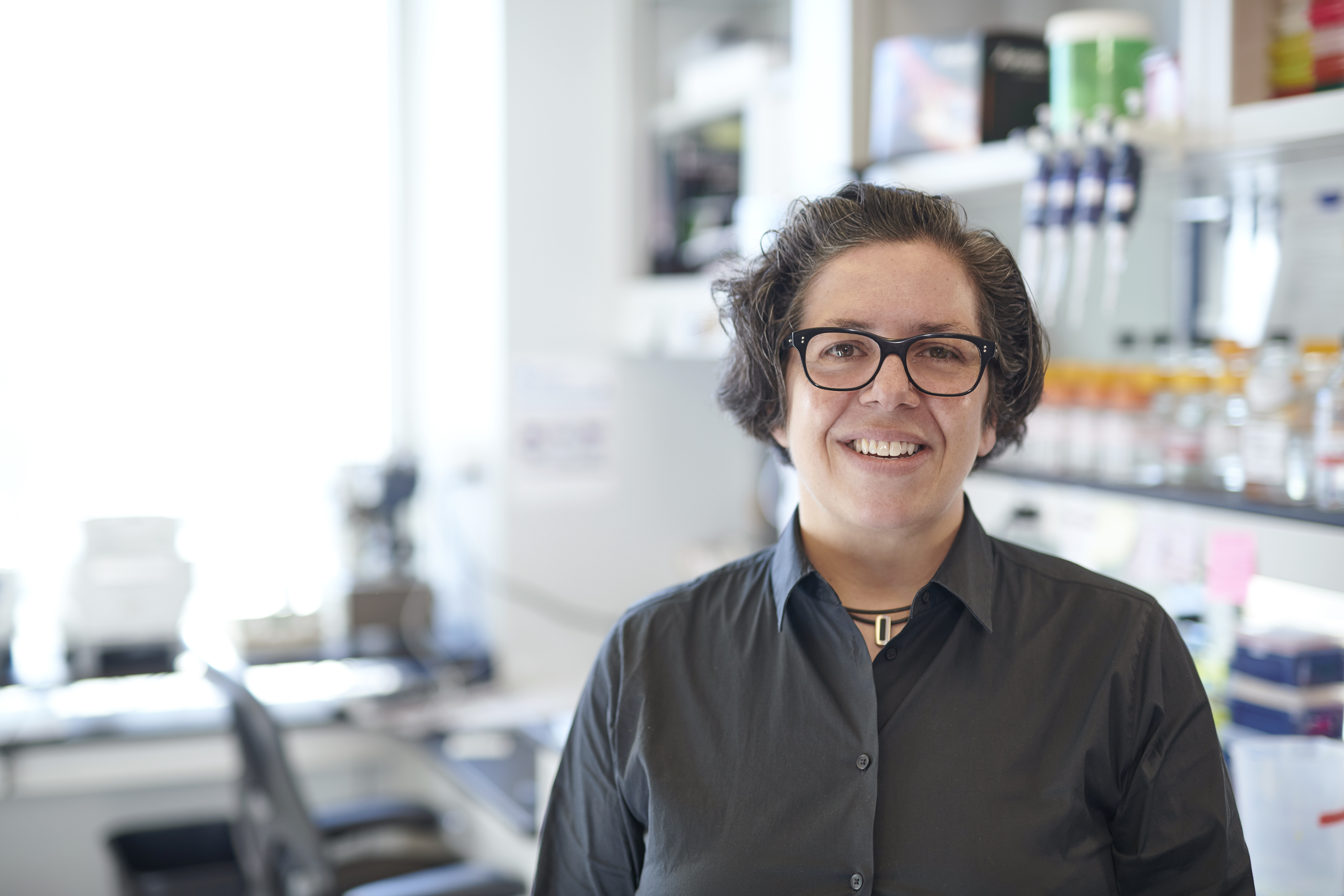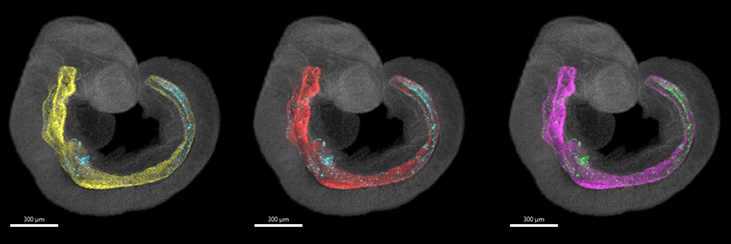
Research
Research in the Hadjantonakis lab seeks to gain insights into the fundamental processes by which tissues and organs develop in their native context - the embryo - and consequently, how these mechanisms can be contextually recapitulated or adapted, in response to damage or in disease states.
The lab are currently pursuing projects investigating mechanisms controlling cell identity and cell-cell communication in mammals, with the goal of understanding and predicting how single cells collaborate within populations to successfully generate tissues and organs. Their overarching focus is on the endoderm, the progenitor tissue which forms in the embryo and gives rise to the internal organs of the respiratory and digestive tracts of the adult (e.g. thyroid, thymus, lungs, liver, pancreas and intestine).
A multi-disciplinary approach bridging scales - from molecular, to cellular, to tissue-level - is employed. This includes cutting-edge high-resolution quantitative methods – from live imaging to single-cell genomics approaches. Current work investigates mechanisms driving: (1) the acquisition of cell states and fates corresponding to loss of pluripotency and the emergence of cells possessing an endoderm identity, (2) the plasticity, differentiation and interactions of endoderm cells with their neighbors, as they acquire regionalized organ-specific identities, and (3) the organization and growth of endoderm cells in tissue context, as organs start to take shape.
Figure 1

Current Projects:
- Live imaging cell states and cell behaviors in vivo
- Time-resolved spatial transcriptomics in 3D tissue context
- Organoid models of tissue formation and patterning
Bio
Dr. Hadjantonakis received her BSc in biochemistry (1990), and PhD in mammalian genetics (1995) from Imperial College London. She undertook postdoctoral training in the field of mammalian development and pluripotent stem cell biology at the Lunenfeld-Tanenbaum Research Institute in Toronto, Canada, and Columbia University, New York. She joined the Sloan Kettering Institute as an Assistant Member in 2004, was promoted to Associate Member/Professor in 2009, and Member/Professor in 2014.
